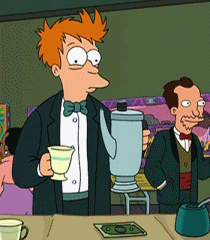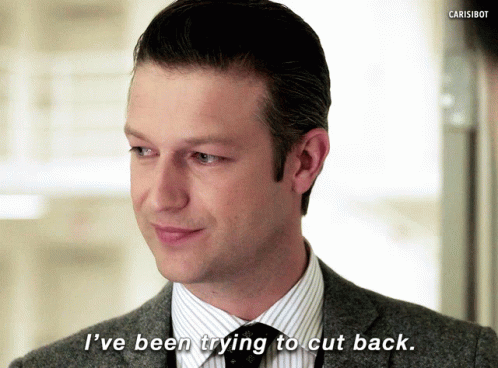Caffeine is a staple in many of our daily routines, providing that much-needed jolt of energy to kickstart the day or keep us going during the afternoon slump.
But with so many people relying on their morning coffee or energy drink, it's important to ask: should I be cutting back on caffeine?

What Is Caffeine and Where Do We Find It?
Caffeine is a natural stimulant found in various plants, including coffee beans, tea leaves, cocoa beans, and kola nuts.
It’s widely consumed across the globe through caffeinated beverages such as coffee, tea, and energy drinks.

Here’s a quick look at the caffeine content in some popular beverages:
- Coffee (8 oz cup): 80-100 mg of caffeine
- Black tea (8 oz cup): 40-70 mg of caffeine
- Green tea (8 oz cup): 20-45 mg of caffeine
- Energy drinks (8 oz): 70-100 mg of caffeine
- Cola (12 oz can): 30-40 mg of caffeine
- Dark chocolate (1 oz): 20-30 mg of caffeine
It's important to note that alternative drinks to coffee may also contain high levels of caffeine, depending on their preparation methods.
How Does Caffeine Affect the Body?
Caffeine acts primarily as a central nervous system stimulant by blocking the effects of adenosine, a neurotransmitter that promotes sleep and relaxation. By doing so, it also increases the activity of other neurotransmitters like dopamine and norepinephrine, leading to increased alertness, energy, and improved mood.

As a result, reducing or eliminating caffeine can lead to symptoms of caffeine withdrawal, such as headaches, fatigue, irritability, and mood changes, impacting both physical and psychological well-being.

Short-Term Effects of Caffeine Intake:
- Increased alertness: Caffeine can make you feel more awake and focused.
- Improved physical performance: It can enhance endurance and strength, making it popular among athletes.
- Mood elevation: Some people experience improved mood and a sense of well-being after consuming caffeine.
- Increased heart rate and blood pressure: These effects are usually temporary but can be concerning for individuals with cardiovascular issues. The short-term effects can vary depending on how much caffeine is consumed.

Long-Term Effects of Caffeine Intake:
- Tolerance: Over time, the body becomes accustomed to caffeine, requiring higher amounts to achieve the same effects.
- Dependence: Regular consumption can lead to caffeine dependence, where sudden discontinuation might cause withdrawal symptoms. Abruptly stopping caffeine can exacerbate a person’s dependence, so a gradual reduction is recommended to avoid reinforcing reliance on caffeine. Common caffeine withdrawal symptoms, such as headaches and nausea, can significantly impact daily activities and mental health.
- Sleep disturbances: Long-term caffeine use, especially when consumed later in the day, can interfere with sleep quality.
- Bone health: Excessive caffeine intake has been linked to reduced calcium absorption, potentially affecting bone density.

Why is Caffeine Addictive?
Caffeine’s addictive nature stems from its effect on dopamine, the “feel-good” neurotransmitter.
By increasing dopamine levels in the brain, caffeine creates a sense of reward and pleasure, similar to how other addictive substances work.
This can lead to a cycle where people consume caffeine to feel better or more alert, but as tolerance builds, they need more caffeine to achieve the same effects.

Breaking a caffeine habit can be challenging due to its addictive nature and the withdrawal symptoms that may follow.
Negative Consequences and Side Effects of Regular Caffeine Consumption
While moderate caffeine consumption is generally considered safe for most people, excessive intake can lead to several health issues:
- Anxiety: High doses of caffeine can increase anxiety levels, leading to jitteriness, nervousness, and even panic attacks.
- Insomnia: Regular caffeine intake, especially in the afternoon or evening, can disrupt sleep patterns and contribute to chronic insomnia.
- Digestive issues: Caffeine stimulates the digestive system, which can lead to acid reflux, abdominal discomfort, or diarrhea in some people.
- Increased heart rate: While this is usually harmless in healthy individuals, those with heart conditions may experience palpitations or arrhythmias.
- Dependency and withdrawal: Sudden reduction or cessation of caffeine can cause withdrawal symptoms like headaches, known as caffeine withdrawal headaches, fatigue, irritability, and low mood. Other caffeine withdrawal symptoms may include nausea, muscle pain, and difficulty concentrating.

Should You Cut Back on Caffeine or Opt for Moderate Consumption?

Whether or not you need to cut back on caffeine depends on your individual tolerance, health status, and how much you currently consume.
For most adults, up to 400 mg of caffeine per day (about 4 cups of coffee) is considered "safe". However, if you’re experiencing negative effects like anxiety, sleep disturbances, or dependency, it might be time to consider reducing your intake.
Here are some steps to help you cut back if you decide it’s necessary:
- Gradually reduce your intake: Abruptly quitting caffeine cold turkey can lead to withdrawal symptoms. Slowly cut back by reducing the number of cups you drink each day.
- Switch to lower-caffeine options: Consider replacing your regular coffee with decaffeinated coffee, herbal tea, or other caffeine-free beverages.
- Be mindful of hidden sources: Caffeine is present in some unexpected places, such as over the counter medications and certain foods like chocolate. Be aware of these sources as you reduce your intake.
- Pay attention to timing: Avoid caffeine in the afternoon and evening to improve sleep quality.
- Stay hydrated: Drinking water can help mitigate some of the withdrawal symptoms and improve overall health.
If you decide to quit caffeine, doing so gradually can help minimize withdrawal symptoms.
My Final Thoughts?
Caffeine can be a helpful support in boosting your energy and focus, but it’s important to use it wisely.
Monitoring your intake and being aware of its potential effects can help you maintain a healthy balance.
If you regularly consume caffeine, it's important to monitor your intake and be aware of its potential effects on your health.
If you’re feeling dependent on caffeine or noticing negative health impacts, cutting back might be a beneficial step for your overall well-being.



